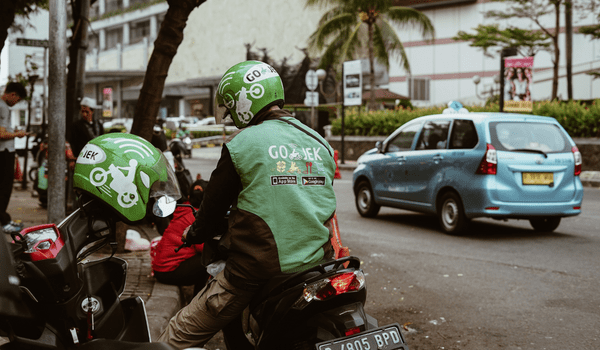The World Bank’s economic update for the Philippines in December 2022 warned of the growing informality in the labour market, with an increase in casual, low-paid, and precarious work due to the gig economy.
In the Philippines, multinational ride-hailing and delivery platforms such as Grab, Foodpanda, Lalamove, and Borzo have penetrated the market, along with local start-ups like Angkas, Joyride, TokTok, MyCab, Hirna, and Mangan.ph. These platforms offer independent contractor arrangements, which takes the informality of work and rebrands the worker as free, flexible, independent, and entrepreneurial.
According to research by Fairwork Philippines, there are close to half a million Filipino platform workers in ride-hailing, food, and courier services. This increase can be attributed to rampant displacements in other sectors of the economy during the pandemic and the rise of platform labour as a primary source of livelihood.
Technology entrepreneurs capitalised on the opportunity and helped improve the government’s employment statistics. However, this has also led to workers becoming more vulnerable and dependent, as they shoulder basic daily costs and the business risk of work, without the protection of labour safeguards.
Four-wheel ride-hailing drivers, for example, pay a daily rental fee averaging P 900 (USD15.72) for the vehicle, which is unaffordable for median wage earners. This has led to intensified marketing of cars and motorcycles directed at potential ride-hailing workers, including promotions of “no cash out” or “zero down-payments” that often result in costly monthly instalments. In addition, workers are vulnerable to scams and may suffer a net loss. This forces them to work longer hours and forgo rest, which can pose a hazard to consumers.
Despite the dangers of “labour platformisation,” the government and market forces continue to promote gig work as a viable entrepreneurial and employment opportunity.
Platform workers are portrayed as free and entrepreneurial, and more advanced and modernised than traditional workers. However, in the absence of regulation, platforms engage in “dynamic pricing” with fluctuating rates, and there is no standard for ensuring adequate and effective mechanisms for workers to raise concerns and seek redress. Workers may also face the threat of deactivation when they make complaints or organise collectively.
Legislative proposals to improve working conditions for platform and freelance workers are pending in the Philippine Congress. However, the platform economy has already expanded its influence and generated employment while operating in an ambiguous and fluid manner, making it difficult to pass laws that protect workers.
There has been a recent surge of labour unrest among workers in the ride-hailing and delivery sectors, highlighting the need for regulation to ensure fair treatment of workers in the gig economy.



